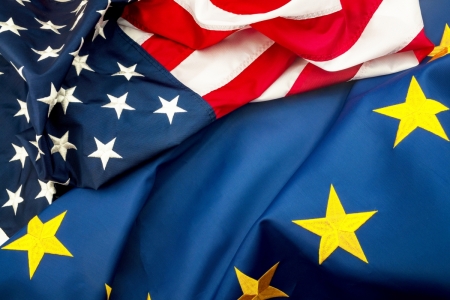You are here
EU and US reach deal on steel and aluminium tariff dispute
On Sunday, 31 October, the EU and the US announced a pause in the transatlantic trade dispute over steel and aluminium tariffs. The US will partially remove Section 232 tariffs (up to historic trade volumes), while the EU will suspend its retaliatory measures. Both sides also agreed to start negotiations on a Global Arrangement on Sustainable Steel and Aluminium.

The American Chamber of Commerce to the EU (AmCham EU) commends the EU and the US for putting an end to a major irritant in the EU-US relationship and charting a path for a more forward-looking approach to tackling global overcapacity of steel and aluminium. No one stood to win from further tit-for-tat measures. These tariffs failed to address unfair trading practices, the root cause of this issue, and only hurt jobs, prosperity and security on both sides of the Atlantic.
The deal demonstrates the crucial role the EU and the US can play when they work together, fighting climate change and addressing unfair trading practices. The fact that other like-minded countries will be able to join this initiative also shows how transatlantic leadership can be an engine for multilateralism. As talks unfold for this new arrangement, compliance with World Trade Organization (WTO) rules will remain critical. The rules-based trading system provides the certainty that companies need to operate globally.
This announcement comes after a series of positive developments in the transatlantic relationship, including a pause on the long-standing aircraft subsidies dispute as well as a range of initiatives launched at the EU-US summit in June, including the creation of the Trade and Technology Council (TTC). The TTC provides a unique platform to make progress on connected issues, such as strengthening supply chains, promoting global standards, reforming the WTO and developing a joint approach to non-market economies. Read more about AmCham EU’s priorities for the TTC here.
